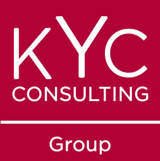
To highlight this issue, KYC Consulting offers its analysis
Hong Kong Insurance Enters a New Era of Risk Culture
Hong Kong’s insurance sector is experiencing a profound transformation in how it views and manages risk. With the introduction of the Risk-based Capital (RBC) regime in July 2024, insurers are moving beyond compliance to embed risk culture at the heart of their operations, This shift is being driven by evolving regulations, new business models, and a growing focus on non-financial risks.
From Policies to Practice: Why Risk Culture Matters Now
It’s no longer sufficient for insurers to simply have policies and procedures on paper. What truly matters is how risk management is practiced daily across the organization. Insurers are now expected to scrutinize every aspect of their business, from ethical decision-making to operational resilience. The goal is to foster a culture where every employee is prepared to face emerging challenges, today and in the future
The Impact of the RBC Regime
The RBC regime represents a major regulatory milestone for Hong Kong. Insurers must now align their capital reserves with their actual risk profiles, ensuring that capital adequacy reflects real-world exposures. Those with robust risk management frameworks will benefit from greater capital efficiency, giving them more flexibility to invest and grow.
Risk Culture as a Strategic Asset
Risk culture has evolved from a compliance checkbox to a genuine driver of business performance. Insurers who invest in strong risk controls and foster a culture of risk awareness will not only meet regulatory expectations but also gain a competitive edge in capital utilization and operational agility.
Non-Financial Risks Take Center Stage
Non-financial risks—including operational, conduct, compliance, and cyber risks are now at the center of the discussions.
- Operational Risk: Regulators require insurers to regularly assess risks, maintain robust business continuity plans, and ensure staff are well-trained to respond to disruptions.
- Conduct & Compliance Risk: Companies are expected to promote ethical behavior and transparent processes, rewarding responsible choices and fostering accountability.
- Cyber & Technology Risk: With digital transformation accelerating, insurers must now meet higher cybersecurity standards under new guidelines effective in 2025. Cyber risk awareness is becoming a core part of risk management strategies.
Trends Shaping Risk Culture in 2025 and Beyond
- Holistic ERM Adoption: Integrated enterprise risk management frameworks are being used to address both financial and non-financial risks across the organization.
- Board & Management Accountability: Leadership is now directly responsible for setting risk appetite and ensuring a proactive risk culture.
- Talent & Training: As risks become more complex, insurers are investing in regular training and recruiting talent from diverse sectors to build resilient teams.
- Technology & Data: Digital tools and analytics are enhancing risk management, but also introduce new challenges like data privacy and cyber threats.
- Group & Cross-Border Risks: With many insurers operating as part of larger groups, managing risks across jurisdictions is increasingly important.
Challenges and Opportunities
Insurers that successfully build a transparent, accountable, and proactive risk culture will not only protect their policyholders but also position themselves for sustainable growth in a rapidly changing environment.
Conclusion
Risk culture is now a strategic priority for Hong Kong’s insurance industry. The combination of new regulations, technological advances, and rising stakeholder expectations is pushing insurers to make risk awareness, ethical behavior, and operational resilience core values. Those who lead in this area will not only stay compliant but also stand out in Hong Kong’s dynamic insurance market.
Stay tuned for more insights on regulatory changes and best practices in risk management.

Frederic Neve
Associate Director
Frederic brings over 20 years of international experience in financial services, with a focus on Transformation, Risk, and Regulatory Compliance across Asia and Europe. Based in Hong Kong, he has led major projects for global institutions, including the parent bank merger of Credit Suisse and UBS, as well as CITI’s APAC LIBOR transition during his time at Deloitte, where he oversaw all workstreams for Hong Kong and Macau.
